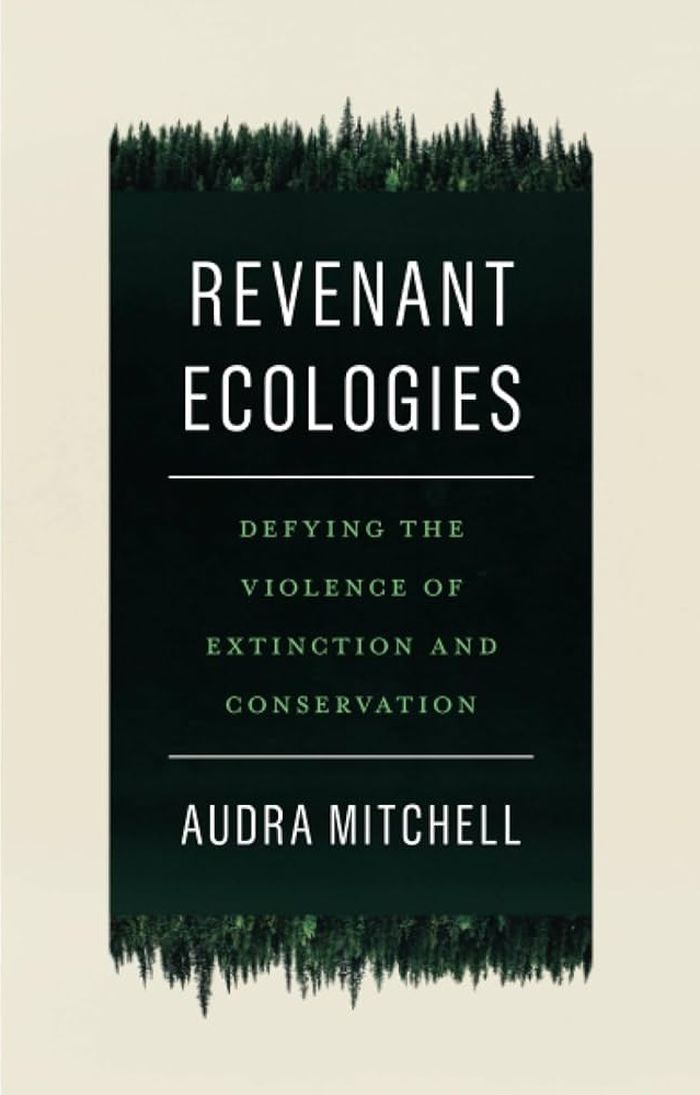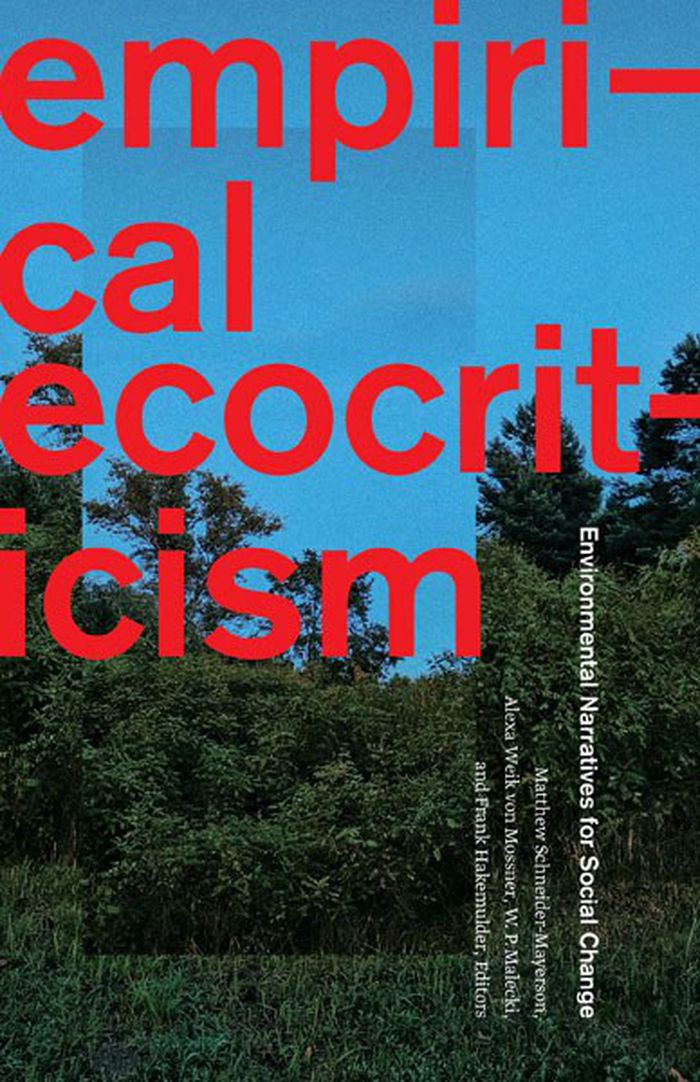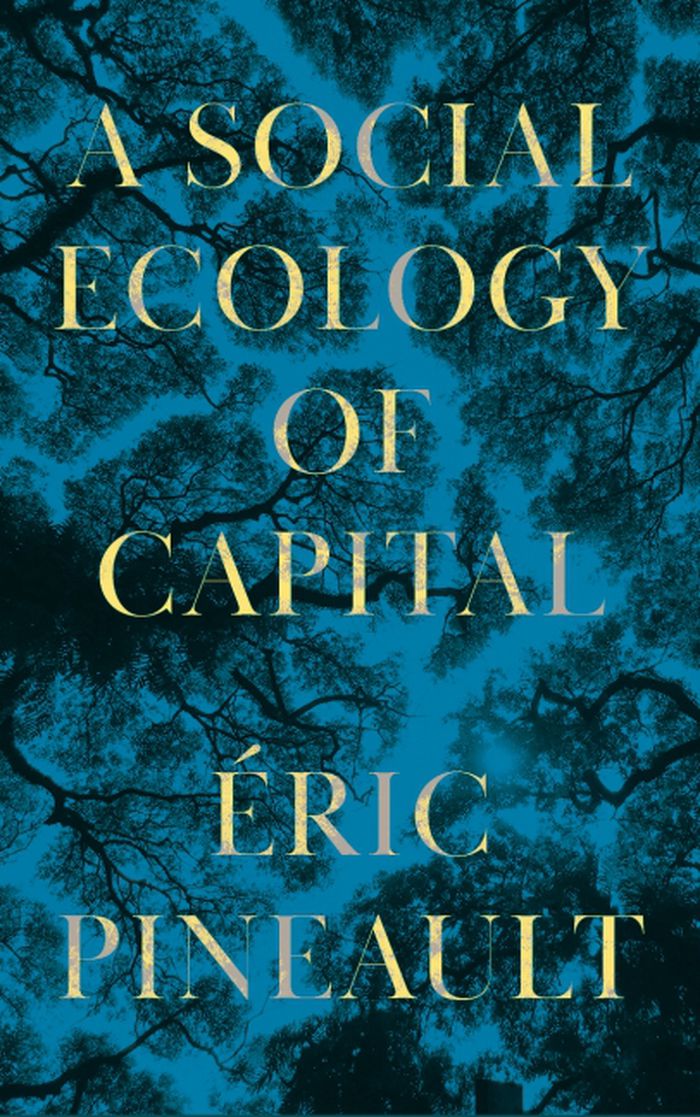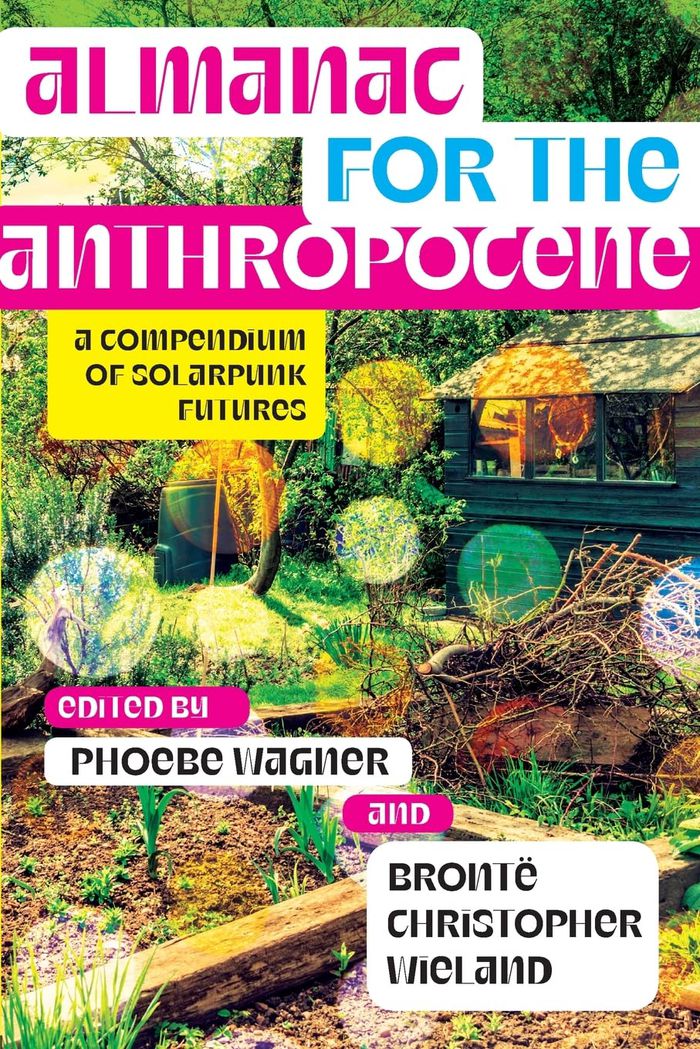$29.95
(disponible en magasin)
Résumé:
Over the past decade, people have learned about oil contamination in the Ecuadorian Amazon through toxic tours in which a guide brings participants – students, lawyers, environmental activists, journalists, and foreign tourists – to visit contaminated sites. These toxic tours combine personal experience and local knowledge to convince visitors of the immediacy of(...)
février 2024
Toxic: A tour of the Ecuadorian Amazon
Actions:
Prix:
$29.95
(disponible en magasin)
Résumé:
Over the past decade, people have learned about oil contamination in the Ecuadorian Amazon through toxic tours in which a guide brings participants – students, lawyers, environmental activists, journalists, and foreign tourists – to visit contaminated sites. These toxic tours combine personal experience and local knowledge to convince visitors of the immediacy of environmental issues. Drawing on extensive research and fieldwork, ''Toxic'' takes the reader on a visual toxic tour through the Amazon. Following the story of three fictional participants, this graphic novel paints a visceral picture of the waste pits, gas flares, and precarious lives of people in this region. The book challenges the reader to consider what it means to live in a place and historical moment where victims of industrial toxicants are continually required to prove that harm has occurred.
$33.00
(disponible sur commande)
Résumé:
La ruralità è una condizione al tempo stesso delimitata e sconfinata, attiva e ricettiva, prodotta e produttiva, pacificata e conflittuale. Rendere esplicita la consistenza politica e ontologica del rurale, significa ridefinire i modi attraverso i quali, come architetti e urbanisti, ci confrontiamo con questa particolare dimensione operativa. Il rurale è un luogo spesso(...)
février 2023
Ecologie Rurali: Pratiche e forme della coesistenza
Actions:
Prix:
$33.00
(disponible sur commande)
Résumé:
La ruralità è una condizione al tempo stesso delimitata e sconfinata, attiva e ricettiva, prodotta e produttiva, pacificata e conflittuale. Rendere esplicita la consistenza politica e ontologica del rurale, significa ridefinire i modi attraverso i quali, come architetti e urbanisti, ci confrontiamo con questa particolare dimensione operativa. Il rurale è un luogo spesso concepito come spazio da addomesticare, da proteggere, da sfruttare o da far fruttare: uno spazio subalterno. È tempo allora di politicizzare il nostro pensiero sul rurale, di decoloniarne il senso e il progetto, mettendo in discussione i tanti immaginari e approcci teorici, quasi sempre semplificanti, cioè ossificanti, attraverso cui oggi è pensato. Ciò che si cerca è una tensione cognitiva volta ad individuare e porre in relazione una complessa e spesso opaca varietà di ecologie sociali e spaziali al di fuori di qualsiasi operazione. Decolonizzare il pensiero rurale, significa farlo vibrare costantemente, dal momento che in campagna, più che altrove, il potere è ortopedico.
$35.95
(disponible sur commande)
Résumé:
In ''The pulse of the earth'' Adam Bobbette tells the story of how modern theories of the earth emerged from the slopes of Indonesia’s volcanoes. Beginning in the late nineteenth century, scientists became concerned with protecting the colonial plantation economy from the unpredictable bursts and shudders of volcanoes. Bobbette follows Javanese knowledge traditions,(...)
The pulse of the earth: Political geology in Java
Actions:
Prix:
$35.95
(disponible sur commande)
Résumé:
In ''The pulse of the earth'' Adam Bobbette tells the story of how modern theories of the earth emerged from the slopes of Indonesia’s volcanoes. Beginning in the late nineteenth century, scientists became concerned with protecting the colonial plantation economy from the unpredictable bursts and shudders of volcanoes. Bobbette follows Javanese knowledge traditions, colonial geologists, volcanologists, mystics, Theosophists, orientalists, and revolutionaries to show how the earth sciences originate from a fusion of Western and non-Western cosmology, theology, anthropology, and geology. Drawing on archival research, interviews, and fieldwork at Javanese volcanoes and in scientific observatories, he explores how Indonesian Islam shaped the theory of plate tectonics, how Dutch colonial volcanologists learned to see the earth in new ways from Javanese spiritual traditions, and how new scientific technologies radically recast notions of the human body, distance, and the earth. In this way, Bobbette decenters the significance of Western scientists to expand our understanding of the evolution of planetary thought and rethinks the politics of geological knowledge.
$37.95
(disponible sur commande)
Résumé:
In "The ends of research" Tom Özden-Schilling explores the afterlives of several research initiatives that emerged in the wake of the "War in the woods," a period of anti-logging blockades in Canada in the late twentieth century. Drawing on ethnographic fieldwork among neighboring communities of White environmental scientists and First Nations mapmakers in northwest(...)
décembre 2023
The ends of research: Indigenous and settler science after the War in the Woods
Actions:
Prix:
$37.95
(disponible sur commande)
Résumé:
In "The ends of research" Tom Özden-Schilling explores the afterlives of several research initiatives that emerged in the wake of the "War in the woods," a period of anti-logging blockades in Canada in the late twentieth century. Drawing on ethnographic fieldwork among neighboring communities of White environmental scientists and First Nations mapmakers in northwest British Columbia, Özden-Schilling examines these researchers' lasting investments and the ways they struggle to continue their work long after the loss of government funding. He charts their use of planning documents, Indigenous territory maps, land use plots, reports, and other documents that help them not only to survive institutional restructuring but to hold on to the practices that they hope will enable future researchers to continue their work. He also shows how their lives and aspirations shape and are shaped by decades-long battles over resource extraction and Indigenous land claims. By focusing on researchers' experiences and personal attachments, Özden-Schilling illustrates the complex relationships between researchers and rural histories of conservation, environmental conflict, resource extraction, and the long-term legacies of scientific research.
$41.99
(disponible en magasin)
Résumé:
As global rates of plant and animal extinctions mount, anxieties about the future of the earth’s ecosystems are fueling ever more ambitious efforts at conservation, which draw on Western scientific principles to manage species and biodiversity. In "Revenant ecologies," Audra Mitchell argues that these responses not only ignore but also magnify powerful forms of structural(...)
Revenant ecologies: Defying the violence of extinction and conservation
Actions:
Prix:
$41.99
(disponible en magasin)
Résumé:
As global rates of plant and animal extinctions mount, anxieties about the future of the earth’s ecosystems are fueling ever more ambitious efforts at conservation, which draw on Western scientific principles to manage species and biodiversity. In "Revenant ecologies," Audra Mitchell argues that these responses not only ignore but also magnify powerful forms of structural violence like colonialism, racism, genocide, extractivism, ableism, and heteronormativity, ultimately contributing to the destruction of unique life forms and ecosystems. Critiquing the Western discourse of global extinction and biodiversity through the lens of diverse Indigenous philosophies and other marginalized knowledge systems, "Revenant ecologies," promotes new ways of articulating the ethical enormity of global extinction. Mitchell offers an ambitious framework—(bio)plurality—that focuses on nurturing unique, irreplaceable worlds, relations, and ecosystems, aiming to transform global ecological–political relations, including through processes of land return and critically confronting discourses on "human extinction."
$41.99
(disponible sur commande)
Résumé:
Part manifesto, part toolkit, part proof of concept, and part dialogue, Empirical Ecocriticism studies the influence of environmental stories on our affects, attitudes, and actions. The contributors leverage case studies on topics ranging from the impact of climate fiction on readers’ willingness to engage in activism to the political empowerment that results from(...)
août 2023
Empirical ecocriticism: Environmental narratives for social change
Actions:
Prix:
$41.99
(disponible sur commande)
Résumé:
Part manifesto, part toolkit, part proof of concept, and part dialogue, Empirical Ecocriticism studies the influence of environmental stories on our affects, attitudes, and actions. The contributors leverage case studies on topics ranging from the impact of climate fiction on readers’ willingness to engage in activism to the political empowerment that results from participating in environmental theater, ultimately pointing toward a novel and fruitful synthesis of the environmental humanities and social sciences.
A social ecology of capital
$37.95
(disponible en magasin)
Résumé:
Faced with an ecological crisis of existential proportions, the economic relations of capitalism have only fanned the flames. The transformation of property relations is an urgent necessity, but not, in itself, enough to save us. Enter 'degrowth': a concept that radically challenges contemporary life, culture and economics as we know it. Through an impressive synthesis of(...)
A social ecology of capital
Actions:
Prix:
$37.95
(disponible en magasin)
Résumé:
Faced with an ecological crisis of existential proportions, the economic relations of capitalism have only fanned the flames. The transformation of property relations is an urgent necessity, but not, in itself, enough to save us. Enter 'degrowth': a concept that radically challenges contemporary life, culture and economics as we know it. Through an impressive synthesis of the traditions of eco-Marxism and feminist ecological economics, Éric Pineault presents a well-rounded critique of contemporary capitalist growth and its socio-ecological contradictions, in which growth is understood as both a biophysical and accumulation process. The book provides fresh answers to key questions of current socio-ecological debates: Why does capitalist society depend on accelerating growth? Why is the constant upscaling of its economic process necessary for its social stability? How does this deepen the ecological contradictions that humanity now faces? And what can we learn from this for our understanding of emancipatory futures?
$33.95
(disponible sur commande)
Résumé:
''Almanac for the anthropocene'' collects original voices from across the solarpunk movement, which positions ingenuity, generativity, and community as beacons of resistance to the hopelessness often inspired by the climate crisis. To point toward practical implementation of the movement’s ideas, it gathers usable blueprints that bring together theory and practice. The(...)
septembre 2022
Almanac for the anthropocene: A compendium of solarpunk futures
Actions:
Prix:
$33.95
(disponible sur commande)
Résumé:
''Almanac for the anthropocene'' collects original voices from across the solarpunk movement, which positions ingenuity, generativity, and community as beacons of resistance to the hopelessness often inspired by the climate crisis. To point toward practical implementation of the movement’s ideas, it gathers usable blueprints that bring together theory and practice. The result is a collection of interviews, recipes, exercises, DIY instructions, and more—all of it amounting to a call to create hope through action. Inspired by a commitment to the idea that there can be no environmental justice without decolonial and racial justice,'' Almanac for the anthropocene'' unites in a single volume both academic and practical responses to environmental crisis.
$32.00
(disponible sur commande)
Résumé:
Examining these questions and many more, ''Plants in place'' is a collaborative study of vegetal phenomenology at the intersection of Edward S. Casey’s phenomenology of place and Michael Marder’s plant-thinking. It focuses on both the microlevel of the dynamic constitution of plant edges or a child’s engagement with moss and the macrolevel of habitats that include the(...)
novembre 2023
Plants in place: A phenomelology of the vegetal
Actions:
Prix:
$32.00
(disponible sur commande)
Résumé:
Examining these questions and many more, ''Plants in place'' is a collaborative study of vegetal phenomenology at the intersection of Edward S. Casey’s phenomenology of place and Michael Marder’s plant-thinking. It focuses on both the microlevel of the dynamic constitution of plant edges or a child’s engagement with moss and the macrolevel of habitats that include the sociality of trees. This compelling portrait of plants and their places provides readers with new ways to appreciate the complexity and vitality of vegetal life. Eloquent and insightful, the book also shows how the worlds of plants can enhance our understanding and experience of place more broadly.
$60.00
(disponible sur commande)
Résumé:
This book brings the history of the geosciences and world cosmologies together, exploring many traditions, including Chinese, Pacific, Islamic, South and Southeast Asian conceptions of the earth’s origin and makeup. Together the chapters ask: How have different ideas about the sacred, animate, and earthly changed modern environmental sciences? How have different world(...)
novembre 2023
New earth histories: Geo-cosmologies and the making of the modern world
Actions:
Prix:
$60.00
(disponible sur commande)
Résumé:
This book brings the history of the geosciences and world cosmologies together, exploring many traditions, including Chinese, Pacific, Islamic, South and Southeast Asian conceptions of the earth’s origin and makeup. Together the chapters ask: How have different ideas about the sacred, animate, and earthly changed modern environmental sciences? How have different world traditions understood human and geological origins? How does the inclusion of multiple cosmologies change the meaning of the Anthropocene and the global climate crisis? By carefully examining these questions, ''New earth histories'' sets an ambitious agenda for how we think about the earth. The chapters consider debates about the age and structure of the earth, how humans and earth systems interact, and how empire has been conceived in multiple traditions. The methods the authors deploy are diverse—from cultural history and visual and material studies to ethnography, geography, and Indigenous studies—and the effect is to highlight how earth knowledge emerged from historically specific situations. ''New earth histories'' provides both a framework for studying science at a global scale and fascinating examples to educate as well as inspire future work. Essential reading for students and scholars of earth science history, environmental humanities, history of science and religion, and science and empire.









